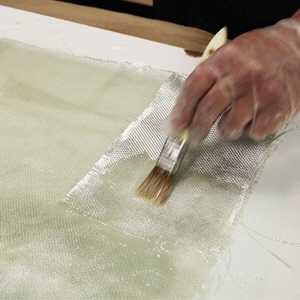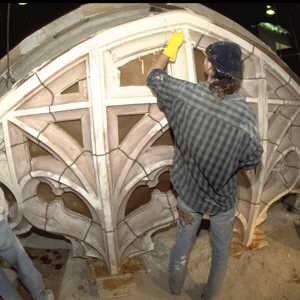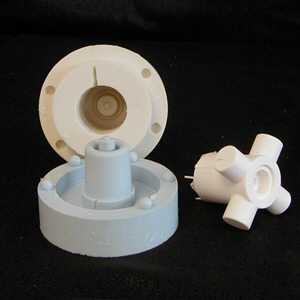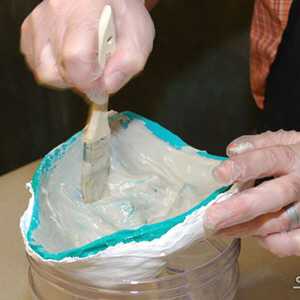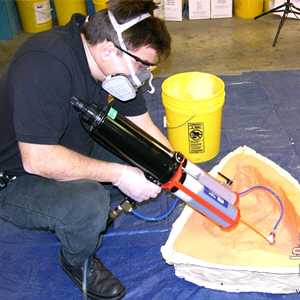- Inicio
- 3D Printers and accessoires
- Moldes y Réplicas
- Siliconas de Estaño
- Siliconas de Platino
- Gomas de Poliuretano
- Alginato
- resinas de Poliuretano
- Espuma de Poliuretano
- Epoxi
- Látex
- Mask Making Latex
- Mold Making Latex
- FormX Elastica
- Monster Makers Kit de Espuma de Látex
- Monstermakers Mask making latex RD-407
- Monstermakers additives & Components
- Holden's HX-200™ Coating/Dipping Latex
- Holden's Brushable HX- Body Latex™
- Holden's Mold Making Latex HX-80™
- Holden's Mold Making Latex High Viscosity HX-974™
- Holden's Mask Making Latex - Pourable HX-407™
- Holden's Mask Making Latex - Brushable HX-807™
- Holden's Cosmetic Latex™
- Holden's Frisket Mask Latex
- Holden's HX-Injection Medium™
- Latex Accessories
- Latex Pigments
- Latex Paint
- Latex Thickener
- Yeso y Hormigón
- Poliester
- AcrylCast
- Fundición Prince August
- Modelar
- Jesmonite sistema acrílico
- Buddy Rhodes Sistema de Hormigón
- Sellar y Despegar
- Pigmentos
- Jesmonite Pigments
- Pure Pigments
- Ultra Fine Pigments
- Silc Pig™ pigmentos
- Glow Worm™ Pigmentos
- Cryptolyte™
- Silc Pig™ Eléctrico
- SilTone
- SilTone Kits
- FuseFX pigmentos de silicone
- Silicone Coloring System S.A.M
- Key-Pigments Silicone Pigments
- Flock fibras
- Latex Pigments
- Polyester Pigmentos
- UVO Pigmentos resistentes al UV
- Tintes SO-Strong™
- Tintes Ignite™
- Real Metal Powders
- Faux Metal Powders
- Cast Magic™ Polvos
- Pinturas
- Rellenos & Refinamiento
- Aditivos
- Disolventes y diluyentes
- Adhesivos
- Herramientas
- Equipos
- Maquillaje
- máscara de goma pintura de grasa
- Skin Illustrator Paletas
- Skin Illustrator líquido
- Fleshtone 60ml
- Fleshtone 120ml
- Dark Fleshtone 60ml
- Dark Fleshtone 120ml
- FX 60ml
- FX 120ml
- FX 240ml
- Complexion 60ml
- Complexion 120ml
- Alchemy 60ml
- Alchemy 120ml
- Grunge 60ml
- Grunge 120ml
- Grunge 240ml
- Mardi Gras 60ml
- Mardi Gras 120ml
- Necromania 60ml
- Mekash Colors 60ml
- Clear Gloss 60ml & 120ml
- Glo-Worm 60ml & 120ml
- Tattoo Classic 60ml & 120ml
- Sunburn
- Alphabetical all
- Skin Illustrator Individual
- Skin Illustrator Glazing Gels
- Skin Illustrator Concentrates
- Skin Illustrator Glazing Spray
- Skin Illustrator Mouth FX
- Allied FX (Blue Bird)
- RipperFX Palettes
- Stacolor Paletas de Maquillaje
- PAX - Pinturas Thom Suprenant
- Tattoo
- MaqPro Farde Palettes
- MaqPro Make-Up Mixer
- MaqPro Creamy
- Pinceles Maquillaje
- MaqPro Bruise Gel
- Old Age Stipple
- Sponges and Applicators
- Stamps & Molds
- Head Armatures
- FormX Tools
- Kryolan maquillaje
- efectos especiales
- material protésico
- Ayuda para elegir
- FormX Academy
- Marcas
- Literature
HX-80™ Mold Making /18,14 kg

HX-80™ Brushable Mold Making Latex is a vulcanizable, low viscosity latex featuring high wear resistance and low shrinkage for concrete casting. Best for making molds of 2-dimensional flat pieces for architectural or decorative objects. Add color with FabTone pigments. Once adequate coats are applied (generally between 10 as a minimum to 20 layers, depending on model), it cures to a highly elastic, wear resistant mold that captures perfect detail. Molds are suitable for casting plaster, concrete and wax. Applications for HX-80 Latex include making flat molds for casting ornamental concrete, stone veneer, 2-dimensional architectural elements and wax candles.
NOTE: Latex can be used for limited casting of some resins. The higher the exotherm of the casting material, the quicker the mold will degrade and become unusable. Mold Max silicone rubbers would be a better choice for production casting of resins.
Allergies: Read label carefully. Do not use this product if you have known allergies to rubber latex. If you're unsure, bring the label to your doctor for their advice. If an allergic reaction occurs, stop use and seek medical help right away.
Instructions
Keep Out of Reach of Children BE CAREFUL - Avoid use if you have known allergies to natural latex. Avoid contact with eyes. Flush eyes with water for 15 minutes and seek medical attention. Remove from skin with
waterless hand cleaner followed by soap and water. Children should not use this product without adult supervision.
PROCESSING RECOMMENDATIONS
GENERAL PREPARATION:
Do not allow HX-80™ to freeze. The material will not be usable. Store and use material at room temperature 23°C. This product has a limited shelf life and should be used as soon as possible. Colder temperatures will slow the working/cure time, while warmer temperatures will reduce working time. Wear safety glasses, long sleeves and rubber gloves to minimize contamination risk.
PREPARING THE MODEL:
The model should be free of any contaminants, including oil, grease and dirt. Most models do not require a sealer or release agent prior to applying HX-80TM. Models containing sulfur must be sealed (such as sulfur-based clays). If unsure of how well latex will release from the model, a small-scale test should be performed by applying a coat or two of latex to an inconspicuous area. Applying a Sealing Agent - if the rubber sticks to the model surface or turns dark after the small scale test, apply a sealer. Holden’s HX Barrier Coat™ or ZINSSER® Bulls Eye Spray Shellac® should be applied to the model’s surface and allowed to thoroughly dry before applying rubber. Secure your model to a firm, flat, non-porous surface (baseboard) prior to applying rubber. Level in all directions.
PRODUCT PREPARATION:
HX-80T™ latex rubber is one component. After opening, an option would be to decant into a smaller plastic container to make your working quantity more manageable and easier to handle.
APPLYING,CURING & PERFORMANCE:
APPLYING THE RUBBER:
Stipple the initial layer as thin as possible onto the model. Work the latex into all detail, do not allow it to pool. If there is pooling after the first layer is brushed on, dab the pools with a brush to help remove excess latex and prevent bubbles from forming. At the bottom edge of the model (where the model meets the baseboard), create a wide and even flange of latex rubber around the perimeter. The flange will help the rubber mold register with the support shell. Applying layers of rubber in even, uniform layers will result in a dimensionally stable mold. Following the first layer, additional layers should be applied when the previous layer is tacky (generally within 1 – 4 hours between coats depending on ambient temperature, humidity and thickness of the rubber.) Do not allow previous layer to fully cure which may result in delamination. Layers should be applied by alternating brushing direction for each layer. (This method reduces stress and warping of the latex as it dries.) Apply as many layers as needed (minimum 10 layers) to achieve a thickness of 0.16 cm for smaller items, and 0.32 cm for larger items.
OPTIONAL - Thickening the Rubber:
After the 4th layer, latex can be thickened with HX-CECO™ Powder tofill in undercuts and deep detail, especially at the edges of the model or for faster mold build-up. Thickened latex must be allowed to dry
completely as wet spots trapped in the latex can cause delamination (generally 8 - 10 hours between thickened coat depending on thickness and amount of HX-CECO™ powder added)
NOTE: Thickened rubber loses some of it’s elasticity and tear strength can be affected.
OPTIONAL - Reinforcing the Rubber:
If needed, the latex can be reinforced by embedding fabric into a coat of wet latex and then saturated with more latex to encapsulate it (usually after the 6th layer). Adding fabric to the latex may limit the
latex’s ability to stretch depending on the fabric. Typical uses would be around the flange or in between layers of a large flat mold where dimensional stability is more important than the latex’s natural ability
to stretch. Examples of materials that can be used include, fine mesh burlap, cheese cloth & muslin.
CURING THE RUBBER:
Full cure occurs after ~7 days at room temperature 23°C This depends on temperature, humidity and thickness.
For faster curing: heat the rubber in a dedicated oven or hot box (Do not use home oven) between (43° C) and (49° C) for a period of 8-12 hours to reach full cure.
APPLYING A SUPPORT SHELL:
Once the mold is fully cured, a rigid support shell (mother mold) is necessary to support the rubber mold during casting.Before applying the mother mold, brush the cured latex with HX-Barrier Coat™. Plasti-Paste™ brushable urethane plastic, gypsum and PVA fibers or other reinforcement are commonly used. Polyester and fiberglass cloth can also be used.
USING THE MOLD:
Avoid exposing the mold to oils (exception is HX-Castor™ Oil),grease or solvents. Molds may be washed with soap and water. For best results when casting plaster, wet the mold with a 1% solution of detergent in water to aid releasing air bubbles from the mold surface; no other release is usually necessary. If casting Concrete, use HX-Castor™ Oil on the surface of the mold prior to casting concrete in the mold.
MOLD PERFORMANCE & STORAGE:
The physical life of the mold depends on how you use it (materials cast, frequency, etc.). Casting resins or other materials with a high exotherm in the mold will quickly deteriorate the mold. Before storing, the mold should be cleaned with a soap solution and wiped fully dry. Store finished latex molds away from UV light and excessive heat (49C). Ensure that molds are completely dry before storing. For best results, store molds with a gypsum casting in them to help retain their shape.
Ayuda para elegir
Todos nuestros productos enumerados por aplicaciones: "Lifecasting", Escultura, Moldes, Fundición, Maquillaje FX, Réplicas, Dientes y Kits de aprendizaje.
su ventanilla única para materiales de modelado en 3D
